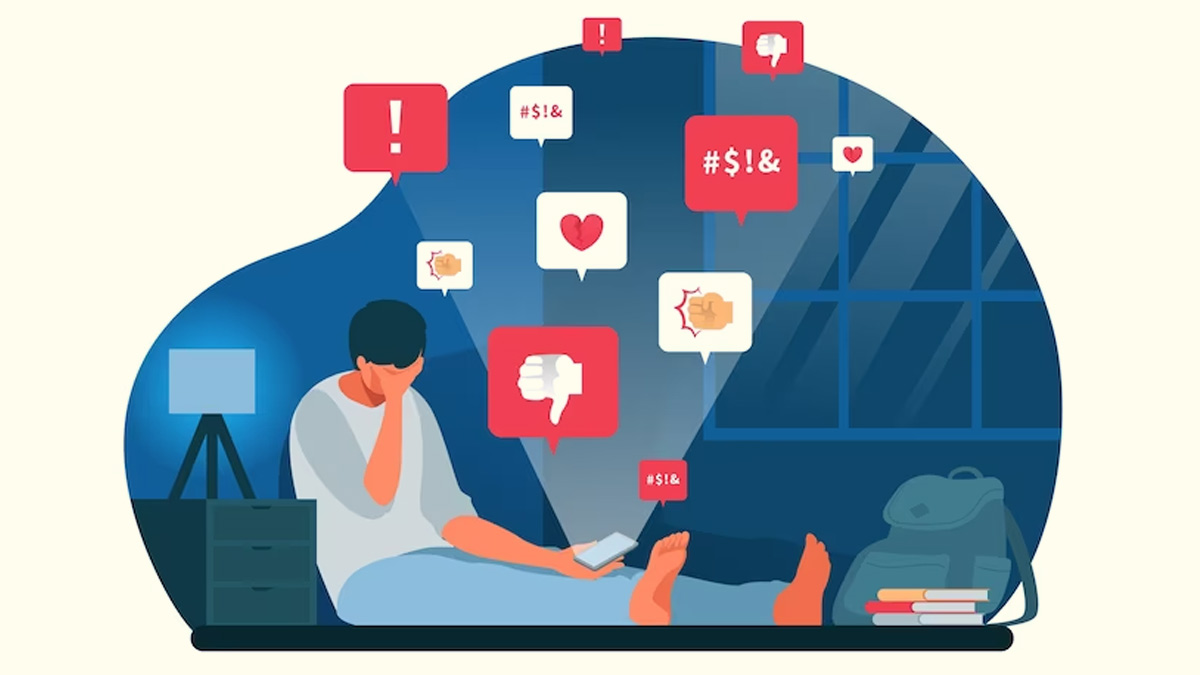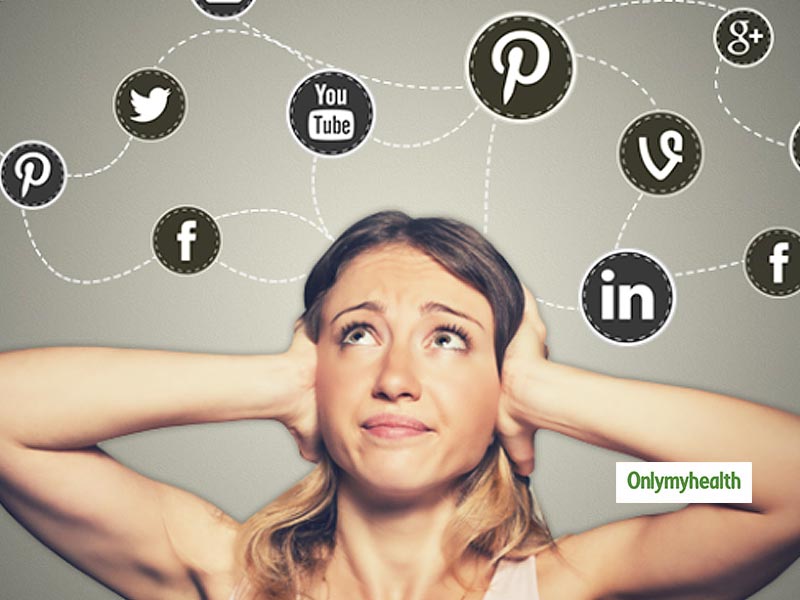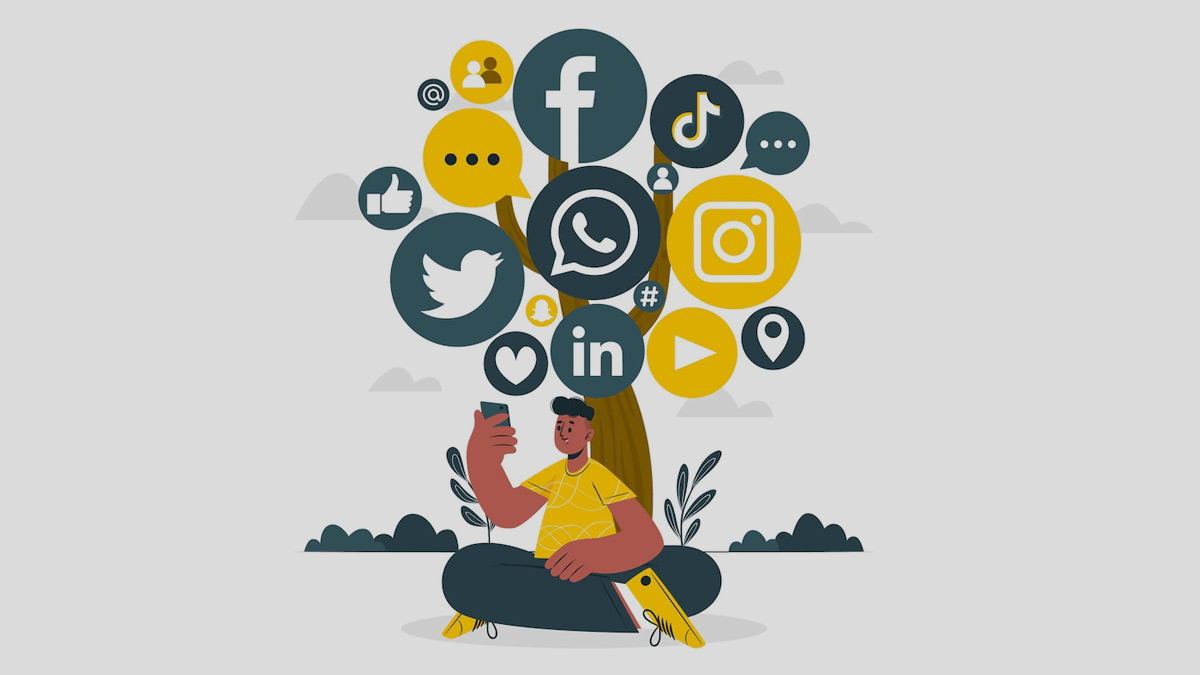
In today's digital age, social media has become an integral part of our lives, offering platforms for connection, information sharing, and self-expression. However, amid the likes, shares, and comments lies a potential downside: the relationship between social media usage and social anxiety. While social media can enhance communication and networking, it also presents a complex landscape that can trigger or exacerbate feelings of social anxiety.
Table of Content:-
CHECK YOUR
MENTAL HEALTH

Link Between Social Media and Social Anxiety
Here's what we know about this intricate connection.
1. The Allure and the Anxieties
Social media platforms offer a curated glimpse into the lives of others, often showcasing idealised versions of reality. This constant exposure to meticulously crafted images and narratives can lead to social comparison, where individuals measure their own lives against the seemingly perfect lives of others. Such comparisons can breed feelings of inadequacy, fueling self-doubt and anxiety about one's own worth and social standing.
2. The Fear of Missing Out (FOMO)
The fear of missing out (FOMO) is another phenomenon amplified by social media. Scrolling through feeds filled with posts of friends attending events, travelling to exotic destinations, or enjoying gatherings can intensify feelings of exclusion and loneliness in those who are not part of such activities. This fear of being left out can drive individuals to obsessively check their social media feeds, leading to heightened anxiety and a sense of disconnectedness from the world around them.

Also Read: Why Avocados Are a Diabetic's Best Friend: Know From Our Expert
3. The Pressure to Perform
In the quest for validation and acceptance, many individuals feel compelled to present an idealised version of themselves on social media. This pressure to maintain a flawless online persona can be mentally taxing, as individuals constantly strive to garner likes, comments, and followers. The fear of judgement and criticism can deter individuals from expressing their true thoughts and emotions, leading to a sense of inauthenticity and isolation.
4. Cyberbullying and Online Harassment
The anonymity afforded by social media can embolden individuals to engage in cyberbullying and online harassment. Hurtful comments, malicious rumours, and cyberattacks can have profound psychological effects on victims, triggering feelings of anxiety, depression, and social withdrawal. The pervasive nature of social media can amplify the impact of such negative experiences, as hurtful content can quickly spread and linger in digital spaces.

Also Read: National Exercise Day 2024: Check Date, Theme, History, Significance, and Best Exercises
5. The Echo Chamber Effect
Social media algorithms are designed to prioritise content based on users' past interactions and preferences, creating personalised echo chambers where individuals are exposed to viewpoints and opinions that align with their own. While this can foster a sense of belonging within like-minded communities, it can also limit exposure to diverse perspectives and fuel confirmation bias. Over time, this echo chamber effect can contribute to the polarisation of beliefs and the erosion of civil discourse, exacerbating feelings of social anxiety in an increasingly divided society.
6. Nurturing Healthy Digital Habits
While the link between social media usage and social anxiety is complex, it's essential to acknowledge the role that digital platforms play in shaping our mental well-being. Practising mindfulness, setting boundaries, and cultivating offline connections can help mitigate the negative effects of social media and foster a healthier relationship with technology. By prioritising self-care and digital wellness, individuals can navigate the digital jungle with greater resilience and self-awareness.
A Final Word
While social media offers unprecedented opportunities for connection and self-expression, it also presents challenges that can impact mental health, including social anxiety. By understanding the complexities of this relationship and adopting strategies to promote digital wellness, individuals can harness the benefits of social media while mitigating its potential drawbacks. Let's strive to cultivate a balanced approach to technology usage, where human connection and well-being take precedence in our digital lives.
Also watch this video
How we keep this article up to date:
We work with experts and keep a close eye on the latest in health and wellness. Whenever there is a new research or helpful information, we update our articles with accurate and useful advice.
Current Version